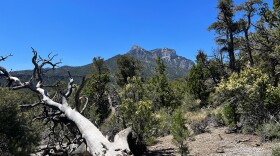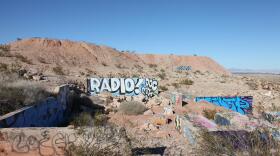Droll, odd, poignant, and awkward moments from the many Februaries of Las Vegas history
February 1, 1952: A large group of “incensed housewives” march on City Hall to protest an abandoned pig farm in their neighborhood that has been turned into a “bawdy house of prostitution.”
February 2, 1946: “Rare African tongueless toads” have arrived in Las Vegas to be used by Dr. C.L. McVey “in place of rabbits for the A-Z (urine pregnancy) test for women.”
February 3, 1928: Vegas Valley pioneer “Shorty” Powers, 54, here since 1896 and despondent over a crippling broken leg, has committed suicide by shooting himself twice, once through the neck, and when that didn’t work, once through the heart, which did.
February 4, 1909: Las Vegas has eight artesian wells, promising “blooming gardens, field crops, and orchards” for our fledgling town.
February 5, 1910: In the obituaries: Judge Marius Beal, 62, who helped create the Vegas Artesian Water Syndicate, which marked “the beginning of development of Vegas valley lands and water.”
February 6, 1927: 700 Texas pecan trees are being sent here to trigger pecan farming.
February 7, 1930: Wanted by police for “passing spurious paper after a bad streak of gambling,” Jack Kilgore, a Las Vegas Café employee, is dead after shooting himself in the heart. The body will lie in his house until the coroner, who is out of town for a few days, returns to examine it.
February 8, 1999: Nevada is ranked second in the nation for firearm fatality rates, based on the 222 suicides and 128 homicides, or 22.4 gun deaths per 100,000 people, in 1996.
February 9, 1915: Undertaker Lloyd Smith has confessed to conducting unlawful experiments on a stillborn baby given him to be buried — “a crime so ghoulish as to arouse intense disgust in practically every citizen of Las Vegas.”
February 10, 1924: The Industrial Workers of the World (Wobblies), “a menace union,” has adopted our town for its Southwest headquarters, to, according to a newspaper, “carry on its work of tearing down the whole fabric of business and social life (in America).”
February 11, 1949: Star of several Shirley Temple films, Bill “Bojangles” Robinson is performing at the Flamingo Hotel.
February 12, 1950: During a Lincoln Day dinner at the Flamingo, Wisconsin’s Republican Senator Joe McCarthy “whips local Republicans into a fire for the coming campaign” by calling for loyalty checks on State Department workers, and referring to J. Edgar Hoover as “the greatest man in Washington, D.C., today.”
February 13, 1909: Area dairymen are warned to not handle milk “while having sores on their hands.”
February 14, 1983: With a 22-0 record, the UNLV Runnin’ Rebels basketball squad, for the first time in school history, is ranked number one in the nation.
February 15, 1924: Local police “interview” leaders of the Industrial Workers of the World to inform them they are “not wanted in this community, advising them to move on.”
February 16, 1918: It is “Soldier Smoke Week” in Vegas, to raise cash to send cigarettes to “our boys in France serving on the rim of the war’s ‘No Man’s Land.’”
February 17, 1906: The newspaper boasts that the “yearling Las Vegas” has the largest ice plant in the West, but to survive as a city it still needs “a sanitarium for consumptives, a cemetery, and more shade trees.”
February 18, 1955: As high winds “quickly dissipate the mushroom cloud” from the Nevada Test Site’s 32nd atomic test, 63 miles away, thousands of spectators here in town are “disappointed by the unspectacular show.”







